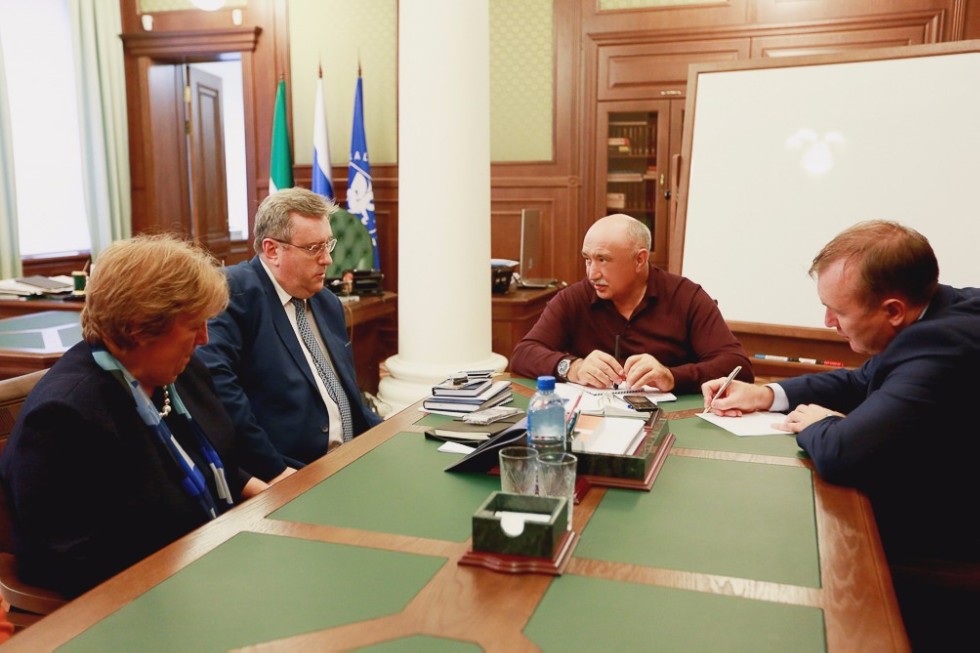Visit by Rector of Moscow State University of Education Alexey Lubkov

The guest from Moscow toured teacher education facilities and met with his peer Ilshat Gafurov on September 5th.
Dr. Lubkov visited the Institute of Psychology and Education, where a unique Center of Practice has been opened - future primary school teachers and subject teachers can hone their professional skills in the most accurate model classrooms. Despite the fact that IPE is the coordinator in pedagogical education, this work is being done at other institutes as well. At the Institute of Philology and Intercultural Communication the visitor could witness the functioning of the so-called distributed system of teacher training, when subject teachers develop their skills at the profiling institute.
"We have both the classical and the distributed model of teacher training. The standard system is concentrated at our Yelabuga Institute, and all institutes of the central campus in Kazan are involved in the distributed system in one way or another. This makes it possible to train teachers who know their subjects as scientists, and who, we hope, are able to best communicate this complex knowledge to their students”, Ilshat Gafurov explained, commenting on the results of the excursion arranged for the guest.
Dr. Lubkov also attended the Islamica Resource Center at the Institute of International Relations, History and Oriental Studies. Here the work is underway to develop methods for the adaptation of migrant children in order to establish targeted work with them in Russian schools. This and other programs, deployed within the framework of SAU Teacher 21, demonstrate the capabilities of Kazan University to methodically enrich and strengthen the scientific backbone of the country's education system. Innovative research in education conducted by KFU has already yielded results, and thanks to the unique structure of the University, which includes two middle schools for gifted children, it is possible to test the solutions developed in practice.
Lyceums also serve as training facilities for students, where future teachers become acquainted with the profession, and education researchers can monitor the effectiveness of the new model of pedagogical staff training. All this gives Kazan University a significant competitive advantage in carrying out such research.
Like Rector Gafurov, Alexey Lubkov is a corresponding member of the Russian Academy of Education, and as such he is also interested in the development of the national education system. He appreciated the endeavors of Kazani colleagues, saying that KFU’s experience deserves wider implementation. He opined that some of it may soon be used at MSUE as well.